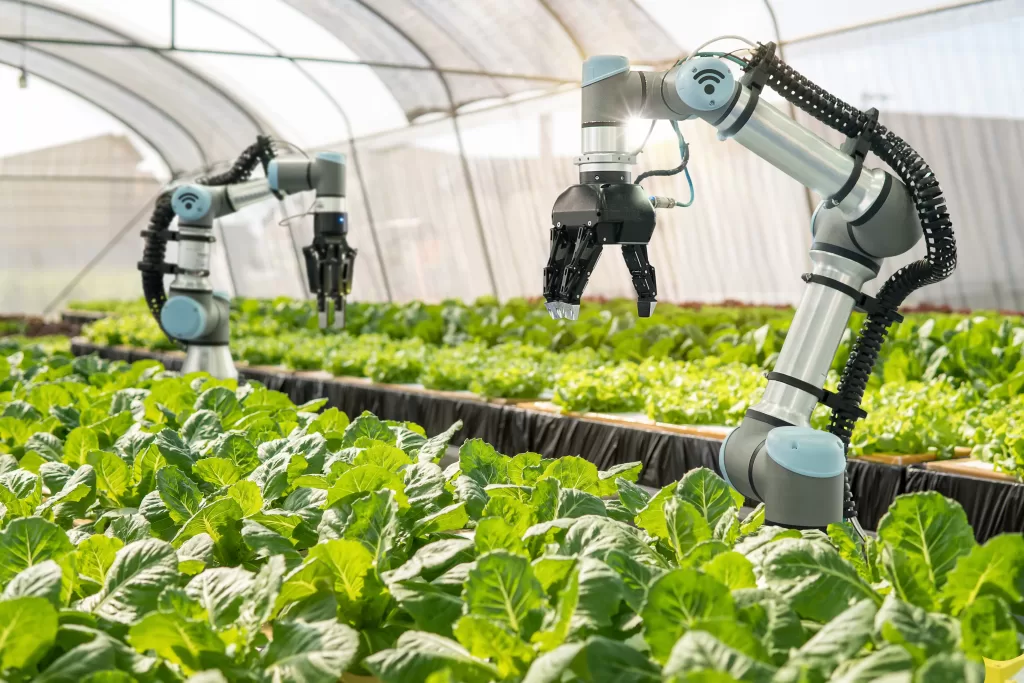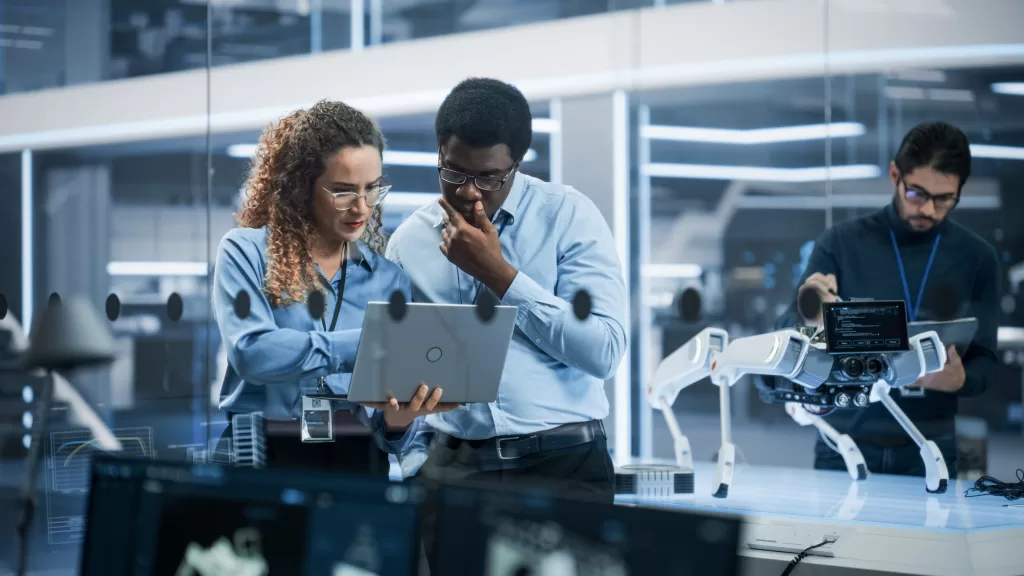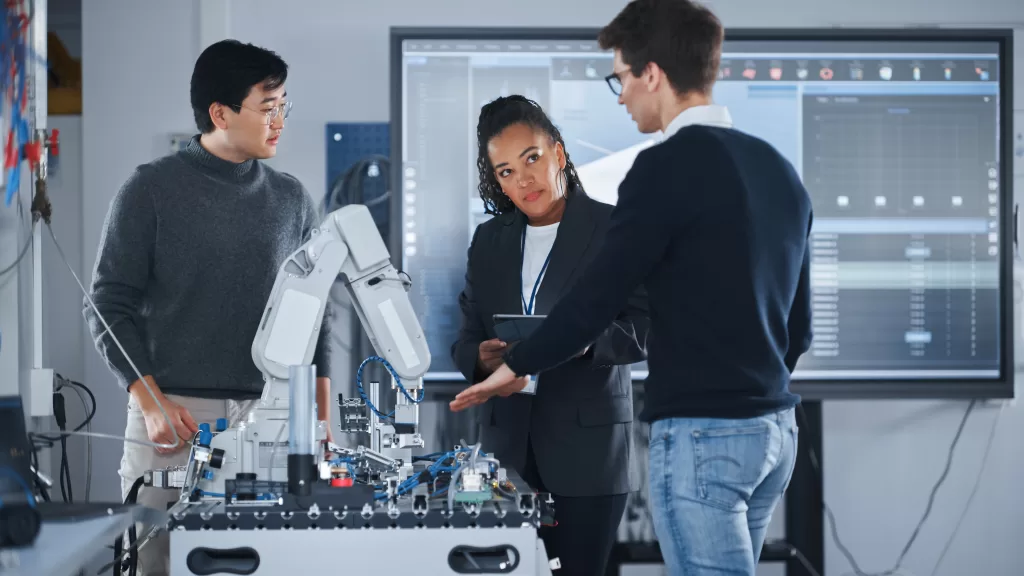Our Projects
The Build Back Better Regional Challenge grant funds five projects, focusing on robotics adoption, upskilling infrastructure and commercialization. Each project has a singular lead and multiple sub-awardees that collaborate to advance industry cluster development in the region.
A $4.8 million grant dedicates funds to boost regional competitiveness by bringing Pennsylvania’s innovations in robotics and automation to SMEs in other industries like agriculture, construction, energy, healthcare, manufacturing, mining and transportation. The project will support production modernization, bring the research and development (R&D) resources of Greater Pittsburgh’s anchor institutions to companies, expand manufacturing supply chains and fill the region’s idled brownfields with thriving enterprises. This project will support SMEs in both urban and rural areas of the region. Direct sub-awardees include Carnegie Mellon University, University of Pittsburgh, and the Digital Foundry (at Penn State New Kensington) and others.


A $14.2 million grant that invests in de-risking the adoption of advanced robotics and automation technology by SMEs through a Robotics Manufacturing Hub, accelerating the commercialization of robotics technologies and establishing four regional Innovation Accelerators. The Hub will help to make SMEs’ operations more resilient and globally competitive while supporting new, safer and more stable manufacturing career opportunities. The Innovation Accelerators will be throughout the region, with at least three outside of Allegheny County, and will use our hub-and-spoke model to link all other projects and encourage business creation in local communities. Along with the regional upskilling partners, these spaces will lead to training and expertise in manufacturing, robotics, and autonomy and connect historically excluded communities to all available expertise.
A $24.8 million grant allows us to establish a highly coordinated, regional upskilling system serving both robotics technology developers and adopters with various training options outside of traditional four-year and advanced degrees that evolve based on industry needs, especially the availability of talent. Through this project, we will expand training and placement opportunities through partnerships between educational institutions, labor and industry; build out a vibrant robotics and autonomy career ecosystem with clear pathways and wraparound services for participants; and create a coordinated system that will evolve with the rapidly changing talent needs of businesses. Workers learn new skills that allow existing firms to adopt and benefit from robotics and autonomous technologies and offer startups the talent they need to take root and scale within our region.


A $12 million grant to further develop a globally prominent robotics ecosystem in the Pittsburgh region. The Robotics Factory will create startups focused on industry-identified challenges that require robotics and related innovations, accelerate the growth of startups, and scale up manufacturing. With four-year support from the EDA, Innovation Works will match a portion of the $12 million provided by the EDA with additional operating and investment capital to provide seed funding to selected startups to help them grow. The Robotics Factory is located in the RIDC Tech Forge building in Lawrenceville, part of the long “Robotics Row” that runs from the Strip District, reinforcing Pittsburgh’s position as a global leader in robotics innovation.
A $6.9 million grant to increase pathways into the robotics and autonomy industries for underrepresented populations and launch new minority- and women-owned business enterprises (MWBEs) that can support our regional economy. This project includes a one-year multidisciplinary academic fellowship for aspiring entrepreneurs and technologists at Carnegie Mellon University.
Training and Market Access for Entrepreneurs (TMACE) will expand opportunities for SMEs to grow their business through the robotics and autonomy cluster and guide regional residents from historically excluded populations toward entrepreneurial opportunities in the cluster. Training partners include Riverside Center for Innovation and University of Pittsburgh Pantherlab Works. The PEER Fellowship, delivered by the world-leading Carnegie Mellon University Robotics Institute and co-created by Women in Tech PGH and The Equity | Impact Center, will provide resources for diverse technologists to enter the region’s top-tier robotics and autonomy ecosystem and prepare the participants to launch and grow an entrepreneurial venture or move into high-impact positions at local startups or established companies.



